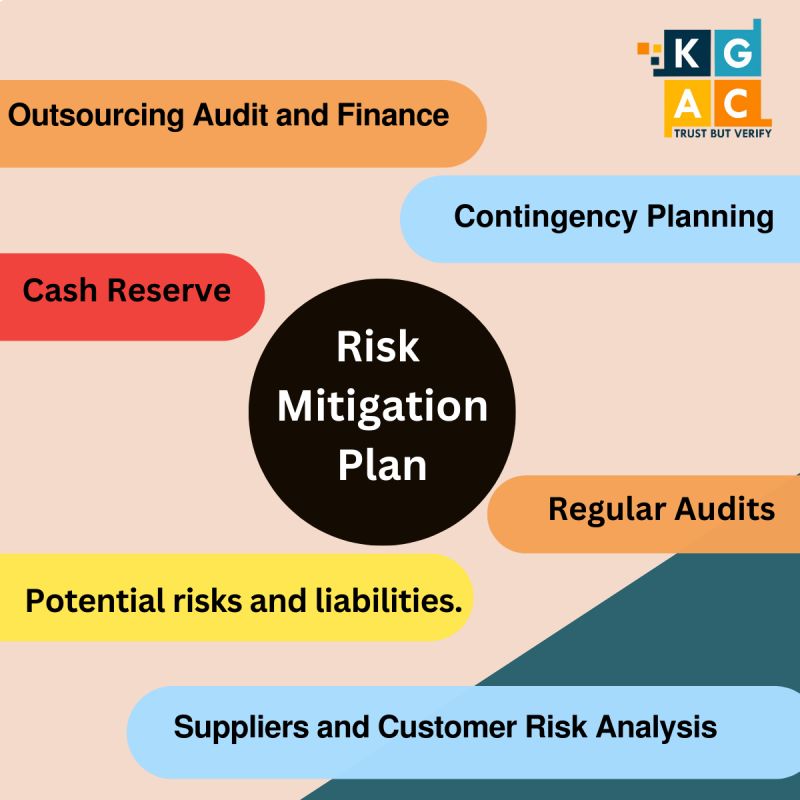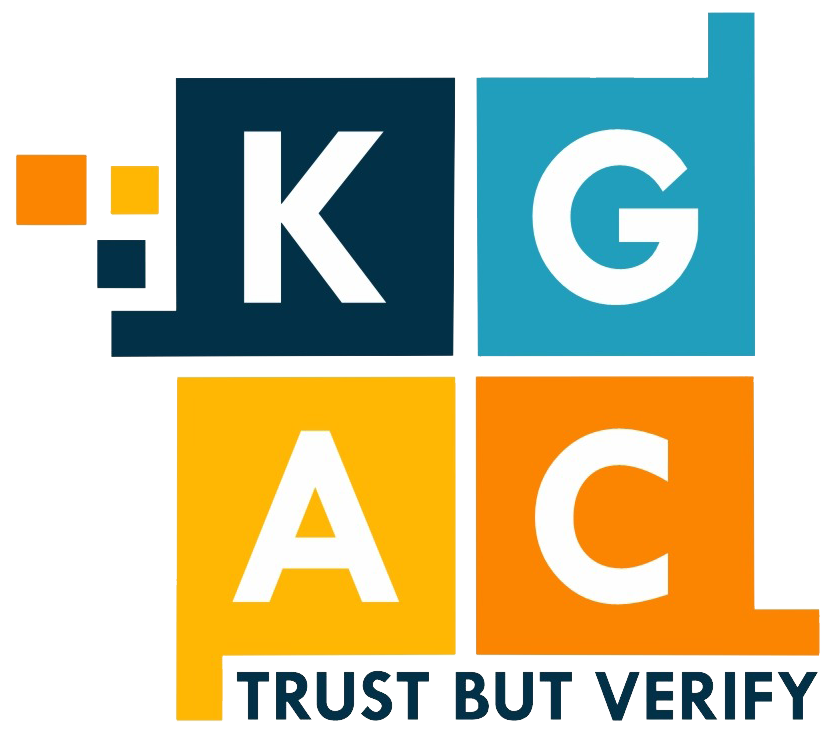
Having a robust risk mitigation plan is critical for safeguarding your enterprise against unexpected financial turbulence and ensuring sustainable growth.
Broadly we can go through some risk mitigation strategies.
✅𝗖𝗼𝗻𝗱𝘂𝗰𝘁 𝗥𝗲𝗴𝘂𝗹𝗮𝗿 𝗔𝘂𝗱𝗶𝘁𝘀
Why do you conduct your product stock audits?
It’s essential to perform routine financial audits. These audits offer an impartial and systematic examination of your company’s financial records, transactions, and processes. This ensures adherence to regulatory standards and reveals any discrepancies.
✅𝗖𝗮𝘀𝗵 𝗿𝗲𝘀𝗲𝗿𝘃𝗲
Cash reserves serve as protective cushions for businesses, enabling them to endure unforeseen challenges. Set aside emergency cash reserves, ideally equivalent to six months to a year of operating expenses.
✅𝗜𝗻𝘀𝘂𝗿𝗮𝗻𝗰𝗲 𝗖𝗼𝘃𝗲𝗿𝗮𝗴𝗲
Begin by performing a comprehensive risk assessment to pinpoint the challenges your business might encounter or is currently experiencing. Subsequently, collaborate with a seasoned insurance broker or agent to customize insurance policies that adeptly tackle these identified risks.
✅𝗦𝘂𝗽𝗽𝗹𝗶𝗲𝗿𝘀 𝗮𝗻𝗱 𝗖𝘂𝘀𝘁𝗼𝗺𝗲𝗿 𝗥𝗶𝘀𝗸 𝗔𝗻𝗮𝗹𝘆𝘀𝗶𝘀
Perform due diligence on your suppliers and clients, which involves financial background checks, credit assessments, and ongoing monitoring. Establish transparent communication channels to stay updated on their financial status and any potential challenges they might encounter.
✅𝗖𝗿𝗲𝗮𝘁𝗲 𝗮 𝗗𝗶𝘃𝗲𝗿𝘀𝗶𝗳𝗶𝗲𝗱 𝗜𝗻𝘃𝗲𝘀𝘁𝗺𝗲𝗻𝘁 𝗣𝗼𝗿𝘁𝗳𝗼𝗹𝗶𝗼
A diversified investment portfolio is a key element in mitigating risk and protecting against market volatility. By distributing investments across various asset classes, such as stocks, bonds, real estate, and commodities, you can minimize the impact of a downturn in any specific sector.
✅𝗖𝗼𝗻𝘁𝗶𝗻𝗴𝗲𝗻𝗰𝘆 𝗣𝗹𝗮𝗻𝗻𝗶𝗻𝗴
Perform an in-depth risk assessment to recognize possible threats and vulnerabilities. Create tailored contingency plans detailing precise actions, responsibilities, and necessary resources to respond efficiently to each scenario.
✅𝗢𝘂𝘁𝘀𝗼𝘂𝗿𝗰𝗶𝗻𝗴 𝗔𝘂𝗱𝗶𝘁 𝗮𝗻𝗱 𝗙𝗶𝗻𝗮𝗻𝗰𝗲
Collaborate with a trustworthy auditing and financial services provider that comprehends your business or is willing to adapt to its specifics. This may encompass offerings such as bookkeeping, tax preparation, financial analysis, and support for audits.
These represent key risk mitigation strategies, though not an exhaustive list. It’s crucial to recognize that in the dynamic business environment of today, the capacity to adapt and secure financial well-being is essential. Through the implementation of the mentioned strategies, business owners can safeguard their assets and position their companies for sustainable growth and success in 2023 and beyond!
For more information, connect with 𝗧𝗵𝗲 𝗞𝗚𝗔𝗖.
